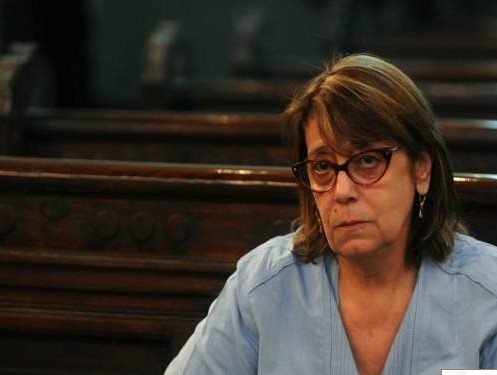In Cairo, Magda Haroun stands as the sole officially recognized Jew in Egypt, guarding a rich heritage amid a community that has shrunk to fewer than five people in 2025. As head of the Egyptian Jewish community since 2013, she focuses on preserving synagogues and cemeteries while navigating a landscape shaped by history and politics.
A Storied Past of Egypt’s Jewish Life
Egypt’s Jewish roots stretch back over two thousand years, with thriving communities in cities like Alexandria and Cairo. Ancient records show Jews contributing to society through trade, scholarship, and culture, including the famous translation of the Hebrew Bible into Greek known as the Septuagint.
This history peaked in the early 20th century when around 80,000 Jews lived in Egypt, integrated into daily life as business owners, artists, and professionals. Conflicts like the 1948 Arab-Israeli War and the 1956 Suez Crisis triggered waves of emigration, reducing the population sharply by the 1970s.

Key events that led to the decline include government policies that seized Jewish properties and restricted rights. Many families left for Israel, Europe, or the Americas, leaving behind a legacy of empty synagogues and forgotten graves.
Magda Haroun’s Rise to Leadership
Magda Haroun took over as community leader after the death of Carmen Weinstein in 2013. Born in 1952, she comes from a family of nationalists; her father, Chehata Haroun, was a prominent lawyer and anti-Zionist who chose to stay in Egypt despite pressures to leave.
Trained as a civil engineer, Haroun never planned to lead. She stepped up out of duty, saying she was the last one able to handle the role. Her personal life reflects Egypt’s diverse fabric: married to a Catholic, with two daughters, she emphasizes her Egyptian identity above all.
Under her guidance, the community has shifted from growth to maintenance. She works with limited resources to document artifacts and protect sites, often facing bureaucratic hurdles from security services.
Haroun’s story gained attention in recent years through interviews and books, highlighting her as a bridge between Egypt’s past and present.
Preservation Efforts Amid Challenges
Efforts to save Jewish heritage sites continue despite obstacles. The Bassatine Cemetery, established in 1482, stands as a key symbol. In recent years, the Egyptian government cleared nearby slums and garbage, allowing better access and upkeep.
Synagogues like Sha’ar ha-Shamayim and Ben Ezra also receive attention. Haroun collaborates with historians and international experts to catalog items from the Cairo Genizah, a massive collection of ancient manuscripts.
Challenges persist, including funding shortages and occasional event cancellations due to security concerns. A planned conference on Moses Maimonides in 2019 was called off at the last minute, showing the unpredictable environment.
Here are some ongoing preservation projects:
- Restoring tomb markers in Bassatine to prevent further decay.
- Digitizing Genizah fragments for global access and study.
- Partnering with foreign embassies for technical support.
These steps aim to keep the heritage alive even as the community fades.
Current State of Egypt’s Jewish Community
As of 2025, openly practicing Jews in Egypt number under five, mostly elderly women in Cairo. This marks a steep drop from 20 in 2019, driven by natural deaths and emigration.
No new members have joined, and Haroun herself notes she is not rebuilding but maintaining. The community lacks a rabbi or regular services, relying on visitors for rituals like burials.
| Year | Estimated Jewish Population in Egypt |
|---|---|
| 1940s | 80,000 |
| 1970s | Under 1,000 |
| 2019 | Fewer than 20 |
| 2025 | Under 5 |
This table shows the rapid decline, tied to broader Middle East conflicts and internal policies.
Public sentiment varies, with some Egyptians viewing Jewish sites as part of national history, while others show indifference or hostility. Social media posts in 2025 reflect mixed views, from calls for protection to unrelated debates on regional tensions.
Looking Ahead for Heritage and Identity
Haroun remains committed, driven by her father’s love for Egypt. She rejects offers from Israel for help, preferring local solutions to preserve authenticity.
Experts predict the community may vanish entirely within a decade, but its cultural impact endures through preserved sites and stories. International interest grows, with books and documentaries spotlighting this chapter.
In a region of change, Haroun’s work reminds us of shared histories that transcend borders. Readers, share your thoughts on preserving cultural heritage in the comments below, and pass this story along to spark conversations.
